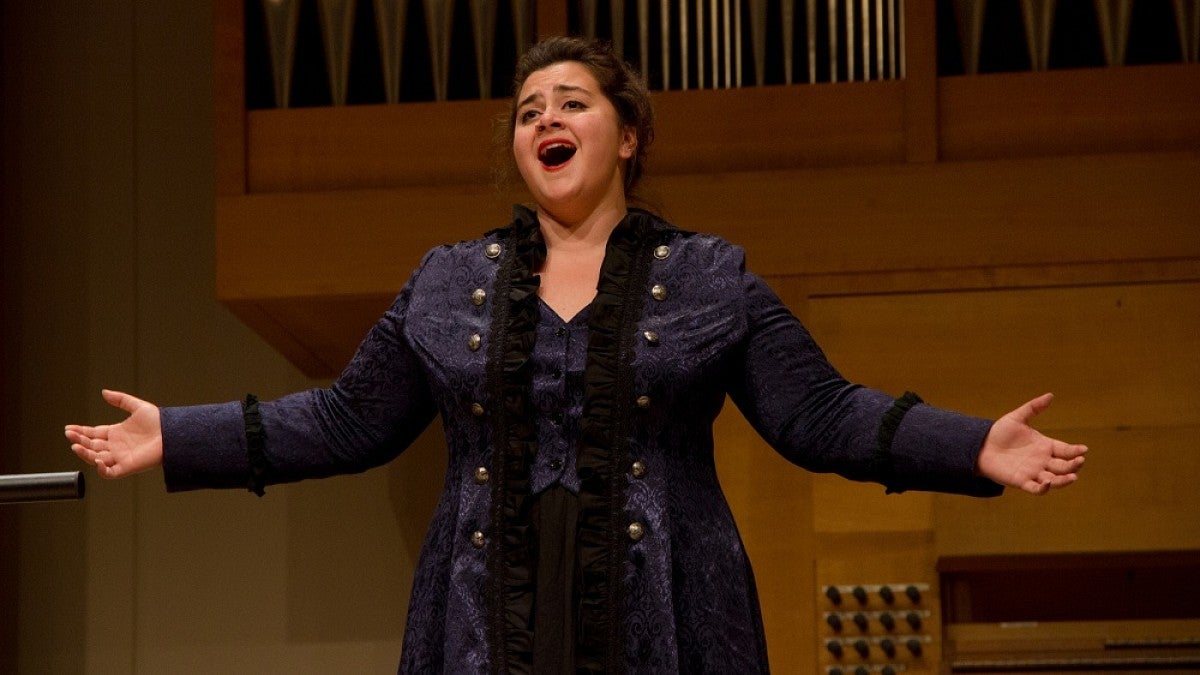Graduate student Sonia Cummings recently came one step closer to fulfilling a lifelong dream of performing at the Metropolitan Opera.
The soprano and UO School of Music and Dance master’s candidate was one of the winners at the Oregon District Metropolitan Opera National Council auditions in Portland and will now advance to the regional Met auditions to be held in February in Seattle.
The Metropolitan Opera National Council Auditions program began in Minneapolis-St. Paul in 1954 with the purpose of providing opportunities for talented young opera singers from around the country. The auditions are a nationwide competition beginning at the district level and culminating in the National Council Grand Finals Concert at the Metropolitan Opera House in New York City.
“I can’t speak for every opera singer, but honestly since becoming an opera singer was something I wanted to do, singing at the Met has definitely been my goal,” Cummings said. “It’s one of the biggest and most world-renowned opera companies in our country.”
Cummings attended her first opera, “Madame Butterfly,” during her freshman year of high school.
“It was so beautiful, and I had never heard classical singing quite like that before,” she said.
Later, as an undergrad at the University of Wisconsin-Stevens Point, where she was majoring in choral education, Cummings auditioned and performed in her own first opera, which eventually led her to the UO Department of Music master’s program and a voice performance major.
To prepare for the Metropolitan Opera National Council auditions, Cummings said she was required to prepare and offer five operatic arias in two or three different languages.
“I chose to sing ‘Ain’t it a Pretty Night’ from Carlisle Floyd’s ‘Susannah,’ and from the rest of my four arias, the judges asked me to sing ‘Je veux vivre’ from Gounod’s ‘Romeo et Juliet.’”
Cummings said her studies have included not only building up a varied repertoire of arias and completing language classes in Italian, French and German but also countless hours of rehearsal with her voice teacher as well as working on technique, interpretation and presentation.
“Opera is mostly about the voice, but it’s also about the performance, the facial expressions and the body language,” she said, “and they (the judges) are looking for a beautiful voice, but also a voice that moves them.”
—By Sharleen Nelson, University Communications


